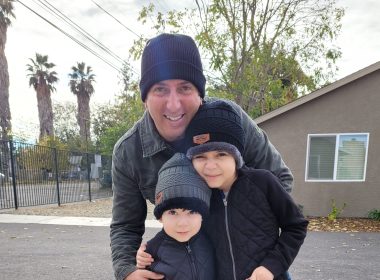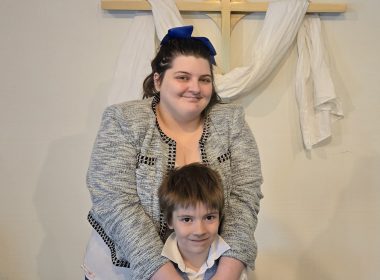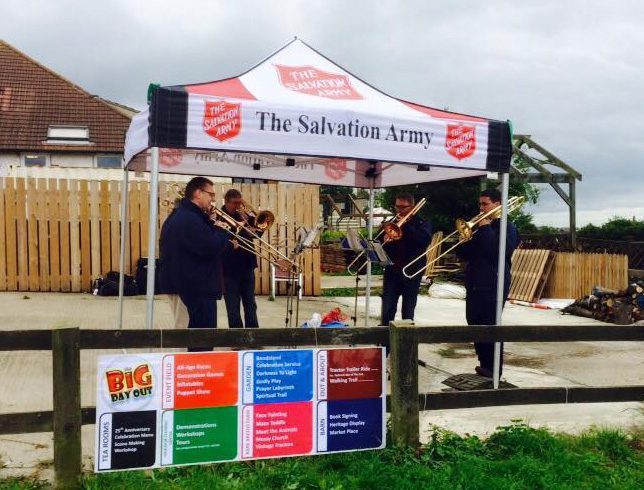By Glen Doss, Major –
Like a terrifying scene from a horror movie, Billy relayed to me each detail of the explosion of his meth lab five years prior: the screams of pain from his best friend, the wailing sound of the approaching sirens, the yells of his partner. “The police are on their way. We’ve got to get out of here! Now! Now!”
Climbing into the car, Billy glanced over his shoulder one more time at the smoking building. That last look at his best friend was permanently emblazoned upon his mind—the gasping sobs, the burning body, the face twisted in pain.
Recounting the real life nightmare, Billy squirmed in his chair, his voice breaking as the tears soaked the tissue in his hands. “See what I did! My lifelong friend died,” he said. “I ran away—to save my own hide! I will never forgive myself. How can God accept somebody like me? A man with blood on his hands!”
In my position as an Adult Rehabilitation Center (ARC) chaplain, I hear such stories regularly. Billy is not alone in his self-condemnation and the subsequent doubting. Most of us regret some things we’ve done. We carry the burden with us wherever we go. But remorse can be crippling, weighing us down, hindering us in our spiritual and emotional growth.
It results not only from bad deeds we’ve done—there is such a thing as “false guilt.” I had a counselee who was his own judge and jury, living a life of doom and dread because his parents had divorced when he was six. Though he was only a small child in a dysfunctional household, a circumstance over which he was absolutely powerless, he still blamed himself. He truly believed he was bad, unworthy, and deserved to be punished. This made it impossible for him to stand up for himself—whatever the situation. This mindset ultimately led to a life of drug and alcohol abuse as for decades he tried to drown his inner misery with intoxicants. The subsequent behavior resulted in additional remorse as he added a long list of misdeeds to the burden he already carried.
What you envisage will ultimately become what you are. Thus, I advise counselees:
Accept God’s forgiveness of your sins. Whatever your current state, freedom can only be found in embracing the mercy of God. Leave the old baggage at the feet of Jesus. Most of us agree that God loves us. Though we say we believe this, many of us walk around holding “love-proof umbrellas” above our heads, trying in vain to ward off God’s great love for us. We need to finally close those and permit his great love to drench us through and through.
We love because he first loved us (1 John 4:19).
Don’t spend time mourning the past. If your misbehavior was real (as in Billy’s case), it is not fair to judge who you once were based on the hindsight you now have. Remorse can be crippling, tripping us up into relapse and backsliding. Continuously reliving the past can become rehearsal for the future. If you’ve sincerely repented of your past wrongs—you are not repeating them—then according to the Scriptures there is no call for regret.
Godly sorrow brings repentance that leads to salvation and leaves no regret, but worldly sorrow brings death (2 Cor. 7:10).
Let God speak to you. God is the giver of consolations. Every time he speaks, he gently reminds and comforts. Daily spend time alone with God in prayer and meditation.
Resolutely set your mind on someone you can help. Self-pity has been called narcissism disguised as depth. As we beat ourselves up, we are focused on ourselves, which is a kind of self-pride. As we reach out in authentic acts of love toward others, we learn that it’s not all about us.
The cry of our hearts: “How can God accept somebody like me?” is addressed clearly in Scripture. I shared with Billy the welcome news that none of us can earn our own salvation. Both the murderer and gossiper stand on level footing—all equally unfit before God.
God saved you by his grace when you believed. And you can’t take credit for this; it is a gift from God. Salvation is not a reward for the good things we have done, so none of us can boast about it (Eph. 2:8-9 NLT).
I was able to tell Billy that God had not only forgiven him but had even forgotten all the bad things he had ever done. “For I will forgive their wickedness and will remember their sins no more” (Jer. 31:34 NIV).
The apostle Peter observed, “I now realize how true it is that God does not show favoritism” (Acts 10:34). God does not choose to forgive one person and not another; he forgives everyone who believes in Jesus Christ. Applying God’s “no favoritism” standard to ourselves, certainly it is just as important to forgive ourselves as it is to forgive others.








